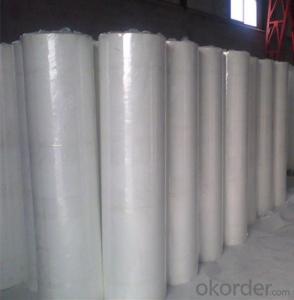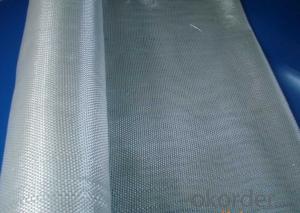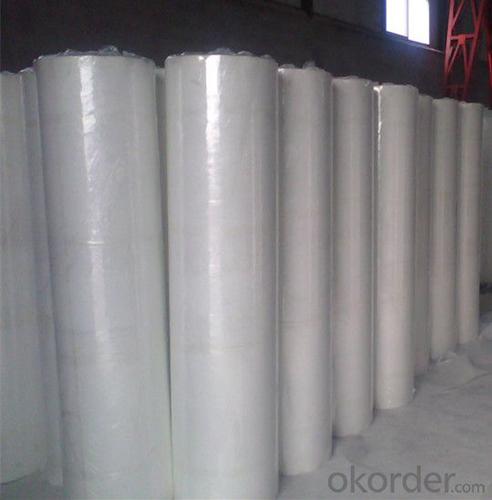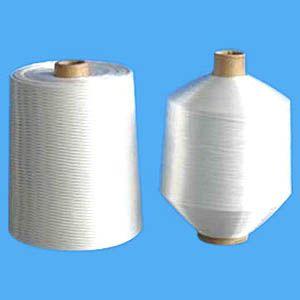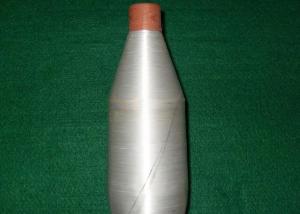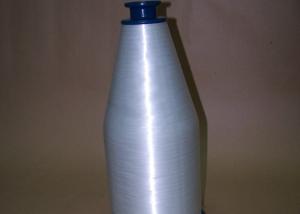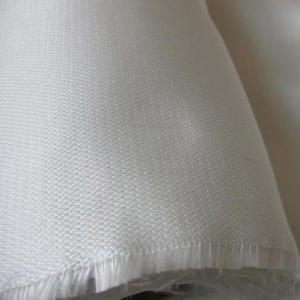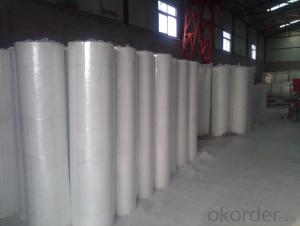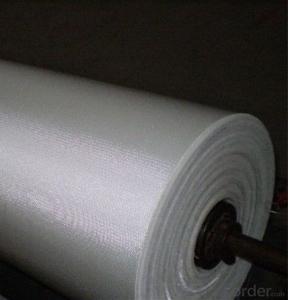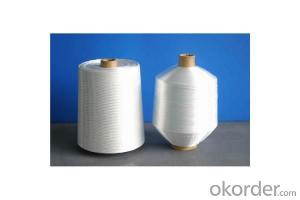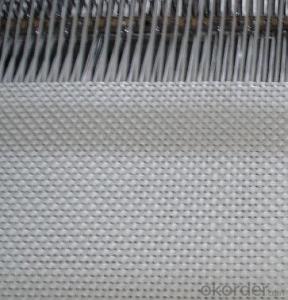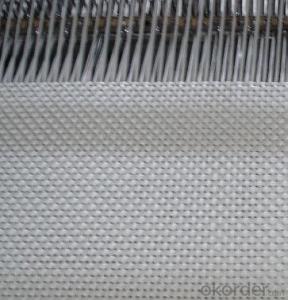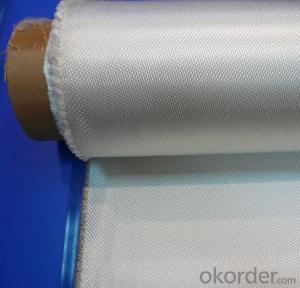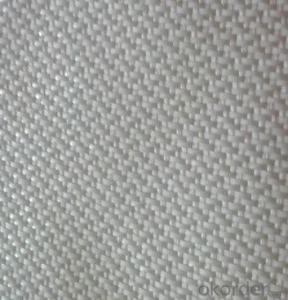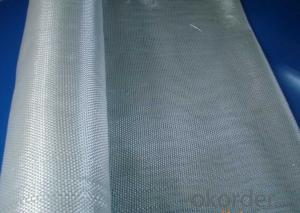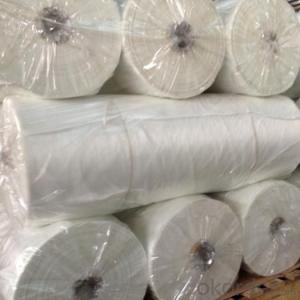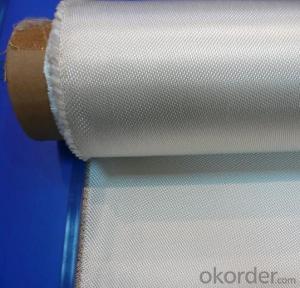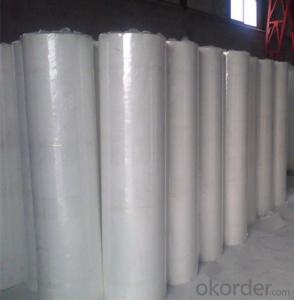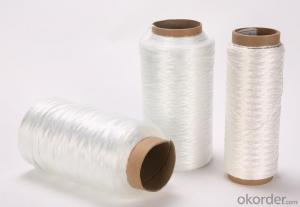Fiberglass Yarn - Fiberglass Fabric of Good Stable Structure ISO9001
- Loading Port:
- Shanghai
- Payment Terms:
- TT OR LC
- Min Order Qty:
- 500 m²
- Supply Capability:
- 50000 m²/month
OKorder Service Pledge
OKorder Financial Service
You Might Also Like
Fiberglass Fabric of Good Stable Structure ISO9001
Fiberglass Fabric Introduction:
Fiberglass fabric is weaved by high quality fiberglass,as a kind of engineering material,which is
many excellent characteristics:
flame-resisting,corrosion resistant,high strength,heat resistance.stable structure,good chemical resistance,durability.
Fiberglass Fabric Features:
1. External thermo insulating composite System (ETICS) & External insulating finish system (EIFS)
2. External and internal plaster reinforcement Fiberglass Mesh;
3. Electrical heating mats Fiberglass Mesh
4. Marble slab reinforcement / Mosaic carrier Fiberglass Mesh;
5. Asphalt reinforcement (roof water-proof)
6. Reinforced lightweight construction boards Fiberglass Mesh.
Fiberglass Fabric Specification:
mark | Fiber consistency(ends/ cm) |
Area weight (g/ m2) |
Thick-ness (mm) |
Width (cm) |
Length (mm) | Breaking strength(N)≥ |
weave | |||
Warp direction | Weft direction | Warp direction | Weft direction | |||||||
EW200 | 16 | 12 | 200±20 | 0.2 | 90-130 | 300-1200 | 980 | 980 | ||
EW210 | 16 | 12 | 200±20 | 0.21 | 90-130 | 300-1200 | 1080 | 1080 | Twill weave | |
Plain weave | ||||||||||
EWR360 | 3.2 | 1.8 | 354±18 | 0.35 | 50-300 | 100 | 2000 | 2000 | ||
EW280 | 16 | 10 | 280±28 | 0.26 | 90-130 | 300-1200 | 1800 | 1800 | ||
EW300 | 14 | 10 | 320±32 | 0.3 | 90-130 | 300-1200 | 1500 | 1500 | ||
EW430 | 20 | 12 | 420±42 | 0.43 | 90-130 | 300-1200 | 2000 | 2000 | Broken twill | |
EWR136 | 10 | 10 | 136±13 | 0.136 | 100 | 200 | 850 | 850 |
Plain weave | |
EWR200 | 8 | 7 | 200±20 | 0.21 | 100 | 200 | 1200 | 1200 | ||
EWR400 | 3.6 | 3.2 | 400±30 | 0.4 | 100 | 50-100 | 2500 | 2500 | ||
EWR600 | 2.6 | 2.5 | 600±50 | 0.6 | 100 | 40KG | 4000 | 4000 | ||
EWR580 | 2.5 | 2.3 | 576±29 | 0.58 | 100 | 40KG | 3850 | 3850 | ||
EWR800 | 1.8 | 1.8 | 800±60 | 0.8 | 100 | 40KG | 4600 | 4600 | ||
Product Show
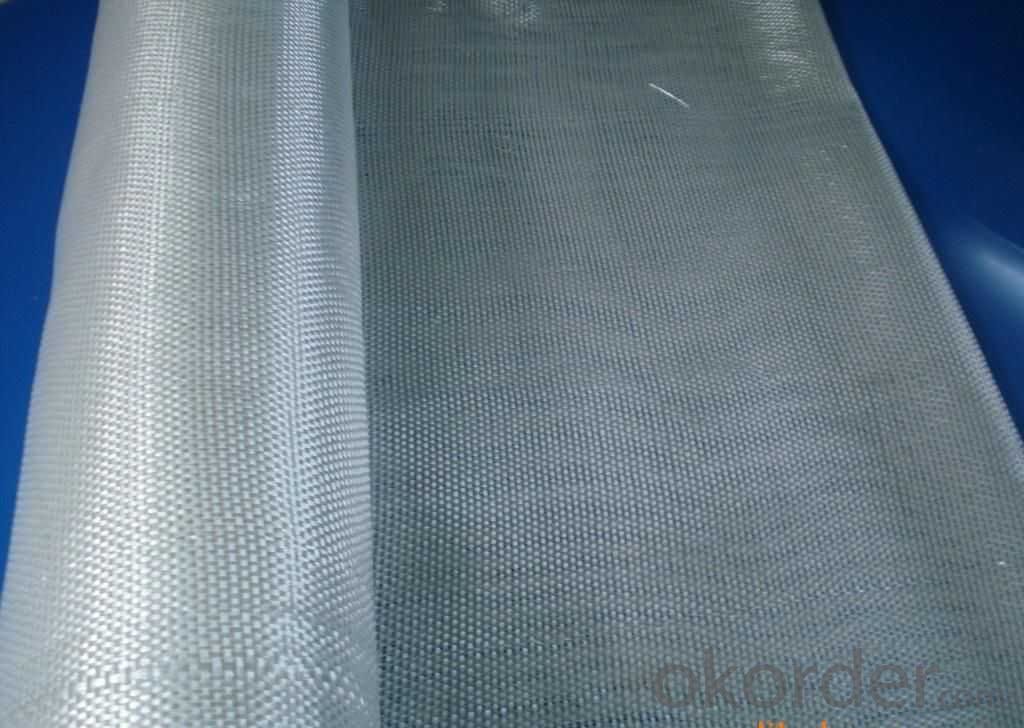
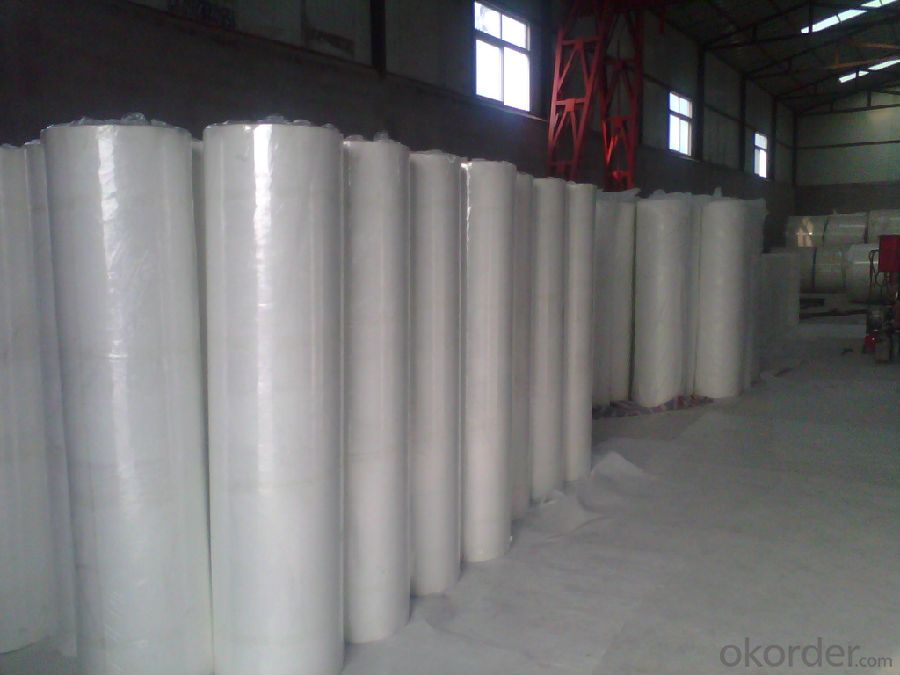
Fiberglass Fabric Usage:
E-glass woven roving is a schistose double faces reinforcement fabric that is weaved into from roving in directly.
E-glass fiber fabric (thin fabrics with thickness from 0.025 to 0.09mm) is suitable for electrical isolation mica product, wax cloth as the reinforcement materials.
E-glass woven roving applys to all kinds of polyester reinforcement system, (such as unsaturated polyester resin, vinylite,epoxy resin and phenolic resin.
FAQ
1.Package of Fiberglass Fabric?
Fiberglass fabric is wound on a paper tube with inner diameters of 50. 8, 76 or 152mm. Each roll is wrapped in a plastic bag, then to be packed in a carton box. The rolls are to be horizontally placed.
Width (cm): 90, 100, 127
Length (m): 100, 200, 300, 400
2.Storage of Fiberglass Fabric?
Store rolls in a cool, dry location
Protect rolls from weather and other damage.
3.If sample available if needed?
We aim to offer our customer best Products&Service,samples are allowed if necessary.
- Q: Is fiberglass yarn suitable for use in automotive body panels?
- Fiberglass yarn proves to be a fitting choice for automotive body panels due to its strength, durability, and corrosion resistance. This material is highly sought after for automotive applications, owing to its exceptional impact resistance necessary for enduring potential collisions. Moreover, fiberglass yarn's lightweight nature contributes to enhanced fuel efficiency and overall vehicle performance. Its flexibility allows for intricate shapes and designs, granting automotive manufacturers more design possibilities. Additionally, fiberglass yarn stands out as a cost-effective option compared to alternative materials, thus becoming a favored selection for automotive body panels. In summary, the automotive industry widely embraces fiberglass yarn for its strength, durability, flexibility, and cost-effectiveness.
- Q: Is fiberglass yarn resistant to tearing or ripping?
- Fiberglass yarn, being made from tightly woven strands of glass fibers, exhibits remarkable resistance against tearing and ripping. Its tightly woven structure effectively thwarts any attempts at tearing or ripping, even under regular circumstances. Moreover, fiberglass yarn boasts a commendable tensile strength, further bolstering its ability to resist tearing or ripping. Consequently, fiberglass yarn proves to be an excellent option for industries seeking a durable and tear-resistant material, particularly in textile manufacturing, composite reinforcements, and insulation production.
- Q: Is fiberglass yarn resistant to oils and greases?
- Yes, fiberglass yarn is known for its resistance to oils and greases. The material's inherent properties make it highly resistant to the effects of these substances. Fiberglass yarn has a low affinity for oils and greases, meaning that these substances do not easily adhere to or penetrate the fibers. This resistance makes fiberglass yarn a suitable choice for applications where contact with oils and greases is expected, such as in the manufacturing of industrial filters, gaskets, or protective clothing. Additionally, fiberglass yarn's resistance to oils and greases contributes to its durability and longevity, as it is less prone to degradation or weakening when exposed to these substances.
- Q: Can fiberglass yarn be used in filtration applications?
- Filtration applications can indeed utilize fiberglass yarn. Fiberglass yarn possesses remarkable qualities including superior strength, longevity, and chemical resistance, rendering it an exceptional option for diverse filtration procedures. Its utilization spans across air filters, liquid filtration, dust collection, and oil filtration. The minute fibers of fiberglass yarn expertly ensnare and confine particles, pollutants, and impurities, ensuring an output that is both clean and purified. Moreover, fiberglass yarn is capable of withstanding high temperatures, making it apt for filtration processes involving hot fluids or gases. The versatility and exceptional filtration properties of fiberglass yarn establish it as a dependable and exceedingly popular choice for a broad spectrum of filtration applications.
- Q: Is fiberglass yarn suitable for making sports jerseys or uniforms?
- Yes, fiberglass yarn is not suitable for making sports jerseys or uniforms. While fiberglass yarn is known for its strength and durability, it is mainly used in industries such as construction, insulation, and manufacturing of various composite materials. Sports jerseys and uniforms require fabrics that are comfortable, breathable, and flexible to allow freedom of movement for athletes. Fiberglass yarn, on the other hand, is not soft or comfortable against the skin and does not provide the necessary flexibility for sports activities. Therefore, it would not be a suitable choice for making sports jerseys or uniforms.
- Q: Is fiberglass yarn suitable for making electrical insulators?
- Yes, fiberglass yarn is suitable for making electrical insulators. Fiberglass is a versatile material that possesses excellent electrical insulating properties. It has a high resistance to electricity, making it an ideal choice for insulating applications. Fiberglass yarn can be woven into various forms such as sheets, tapes, or ropes, allowing it to be used in different electrical insulation applications. Additionally, fiberglass is also resistant to heat, chemicals, and moisture, which further enhances its suitability for electrical insulation purposes.
- Q: What are the common thicknesses or gauges of fiberglass yarn?
- The common thicknesses or gauges of fiberglass yarn range from 300 tex to 4800 tex, with tex being the unit of measurement for linear mass density of fibers.
- Q: Can fiberglass yarn be used in shipbuilding?
- Fiberglass yarn has the capability to be utilized in shipbuilding. Being both sturdy and lightweight, fiberglass yarn is appropriate for a variety of applications in the marine industry. Its common use in shipbuilding involves reinforcing composite materials like fiberglass-reinforced plastic (FRP) composites. These composites are integral in constructing boat hulls, decks, and other structural components, as they provide enhanced strength and durability. Additionally, fiberglass yarn possesses corrosion resistance, a significant trait for shipbuilding materials. In conclusion, fiberglass yarn is a versatile substance that can effectively contribute to the construction of ships and other marine vessels.
- Q: How does fiberglass yarn affect the flexibility of a product?
- Fiberglass yarn can greatly affect the flexibility of a product, depending on how it is used. Fiberglass itself is a strong and rigid material, but when converted into yarn, it becomes more pliable and flexible. When incorporated into the manufacturing process of a product, fiberglass yarn can provide reinforcement and structural strength, while allowing for some degree of flexibility. The flexibility of a product can be influenced by the amount and density of fiberglass yarn used. Increasing the amount of fiberglass yarn in a product can enhance its rigidity and decrease its overall flexibility. On the other hand, using a lower density of fiberglass yarn or combining it with other materials can help maintain or even improve the flexibility of the product. Additionally, the way fiberglass yarn is woven or knitted together can also impact the flexibility of a product. Different weaving or knitting techniques can create varying levels of flexibility, allowing for customized products with specific flexibility requirements. In summary, fiberglass yarn can impact the flexibility of a product by providing reinforcement and structural strength. The amount, density, and weaving or knitting technique used can all influence the level of flexibility achieved. By carefully considering these factors, manufacturers can ensure that the final product meets the desired level of flexibility while still benefiting from the strength and durability that fiberglass yarn provides.
- Q: How does fiberglass yarn affect the durability of a product?
- Fiberglass yarn significantly enhances the durability of a product. Due to its high tensile strength and resistance to chemicals, heat, and moisture, fiberglass yarn reinforces the structure and provides excellent stability. This reinforcement ensures that the product can withstand external forces, impacts, and wear over time, ultimately prolonging its lifespan and increasing its overall durability.
Send your message to us
Fiberglass Yarn - Fiberglass Fabric of Good Stable Structure ISO9001
- Loading Port:
- Shanghai
- Payment Terms:
- TT OR LC
- Min Order Qty:
- 500 m²
- Supply Capability:
- 50000 m²/month
OKorder Service Pledge
OKorder Financial Service
Similar products
Hot products
Hot Searches
Related keywords
